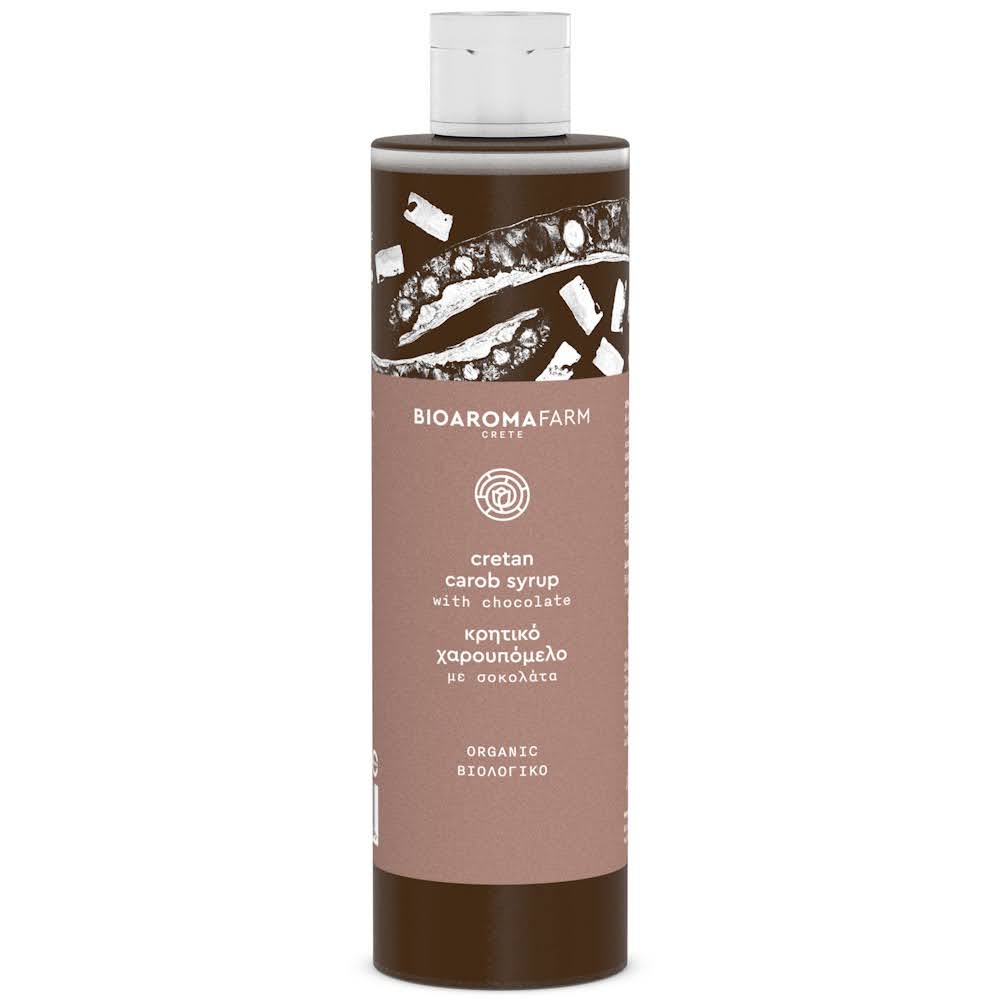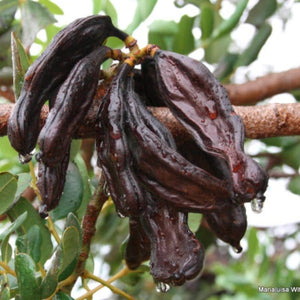

Indulge in the delightful blend of Cretan carob syrup, infused with rich dark chocolate. This exquisite syrup offers three times more calcium than milk, making it a natural source of this essential mineral. Alongside its sweet appeal, it's enriched with iron, phosphorus, and fiber, providing a wholesome addition to your diet. Carob honey, a 'multi-carat' food produced in-house, shares the same calcium-rich benefits, boasting 350mg of calcium per 100g compared to milk's 130mg. Known for combating arthritis and osteoporosis, it's a superfood packed with antioxidants, phytonutrients, and tannins that aid digestion. With ample thiamine (vitamin B1), riboflavin (vitamin B2), niacin (vitamin B3), vitamin D2, iron, and magnesium, carob honey exceeds carob powder's nutrients without caffeine, boasting 180 calories per 100g compared to cocoa's 300 calories. An ideal choice for diets, it's low in fat, containing just 40 calories per tablespoon. Embracing traditional beliefs, carob is linked to increased libido and sperm count. It's gluten-free, perfect for those with celiac disease, and highly beneficial for osteoporosis, pregnancy, children's development, indigestion, and constipation.
100%
natural content
100%
sugarcane bottle
Eco friendly
packaging
Inspired by
Minoan recipes
Non
GMO
Preservative
free
Sustainable
Vegetarian